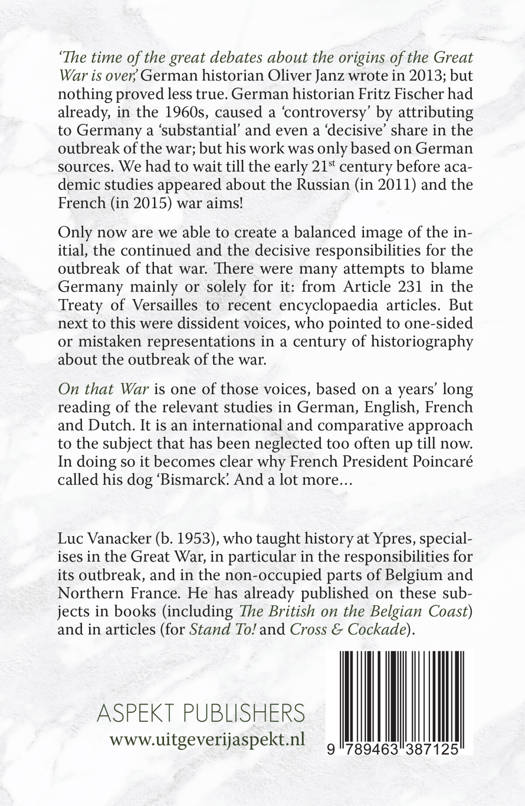
- Retrait gratuit dans votre magasin Club
- 7.000.000 titres dans notre catalogue
- Payer en toute sécurité
- Toujours un magasin près de chez vous
- Retrait gratuit dans votre magasin Club
- 7.000.000 titres dans notre catalogue
- Payer en toute sécurité
- Toujours un magasin près de chez vous
On that War
Reflections on a Century of Historiography on the Origins of the Great War
Luc VanackerDescription
'The time of the great debates about the origins of the Great War is over, ' German historian Oliver Janz wrote in 2013; but nothing proved less true. German historian Fritz Fischer had already, in the 1960s, caused a 'controversy' by attributing to Germany a 'substantial' and even a 'decisive' share in the outbreak of the war; but his work was only based on German sources. We had to wait till the early 21st century before academic studies appeared about the Russian (in 2011) and the French (in 2015) war aims!
Only now are we able to create a balanced image of the initial, the continued and the decisive responsibilities for the outbreak of that war. There were many attempts to blame Germany mainly or solely for it: from Article 231 in the Treaty of Versailles to recent encyclopaedia articles. But next to this were dissident voices, who pointed to one-sided or mistaken representations in a century of historiography about the outbreak of the war.
On that War is one of those voices, based on a years' long reading of the relevant studies in German, English, French and Dutch. It is an international and comparative approach to the subject that has been neglected too often up till now. In doing so it becomes clear why French President Poincaré called his dog 'Bismarck'. And a lot more...
Luc Vanacker (b. 1953), who taught history at Ypres, specialises in the Great War, in particular in the responsibilities for its outbreak, and in the non-occupied parts of Belgium and Northern France. He has already published on these subjects in books (including The British on the Belgian Coast) and in articles (for Stand To! and Cross & Cockade).
Spécifications
Parties prenantes
- Auteur(s) :
- Editeur:
Contenu
- Nombre de pages :
- 92
- Langue:
- Anglais
Caractéristiques
- EAN:
- 9789463387125
- Date de parution :
- 08-07-19
- Format:
- Livre broché
- Format numérique:
- Trade paperback (VS)
- Dimensions :
- 133 mm x 203 mm
- Poids :
- 113 g









